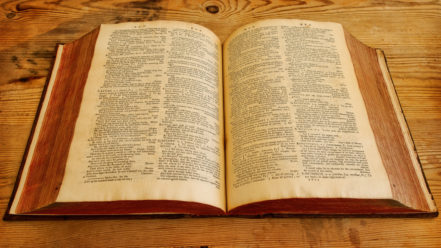
Johnson’s dictionary
Samuel Johnson (1709-84) grew up in Staffordshire with a bookshop on the ground floor of his home, his father being a bookseller. As a sickly but precocious child, Samuel spent much of his time reading. He went on to create the revered ‘A Dictionary of the English Language’ in 1755, which stood as the ultimate authority on spelling, meaning, usage and pronunciation for the next 125 years.
It took nine years to produce, with the help of six assistants. The Earl of Chesterfield gave him the contract in 1746 and paid him £1,575. The Earl was thrilled with the eventual result. Not only did it give definitions but also more than 200,000 examples of correct use, borrowed from writers such as Shakespeare and Milton.
Johnson had started the project with the idea that it would “fix” the language, but by the end of the nine years he had come to realise that it is folly to imagine that any dictionary “can embalm [the] language and secure it from corruption and decay” (Johnson, quoted in Crystal, 2007). Nevertheless, Johnson’s dictionary was a major milestone in the English language and set a high standard for all future efforts.
(Image: Alex Brown on Flickr.com / CC BY 2.0)
